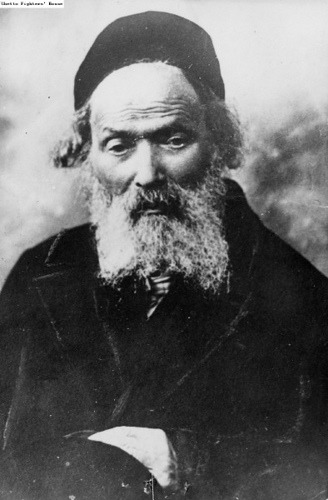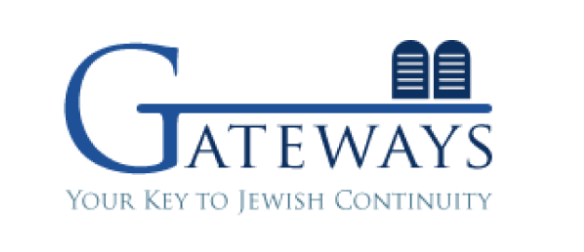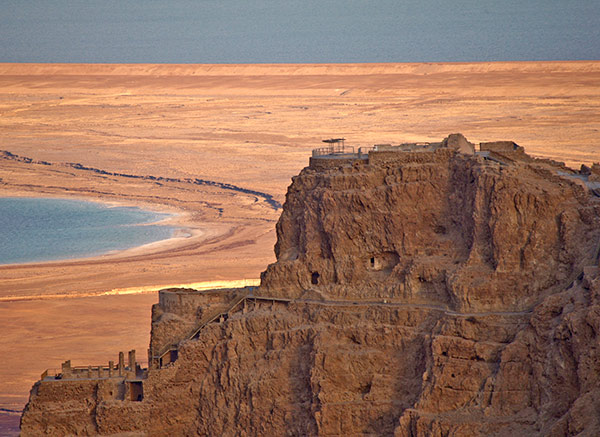 American Jewry's greatest challenge (at least until now) has been how to maintain our Jewish identity while living in the most free and accepting land we have ever encountered in our long exile, (Moshiach should come immediately and redeem us all). While Jews have flourished in America, Judaism struggled until it emerged into a strong, vibrant force where yeshivas are over-flowing with both men and women learning at levels in many cases, that their parents and grandparents never would have imagined nor were able to achieve. The strength and fortitude of previous generations granted us both the blessings of financial and spiritual achievement in America. Freedom and free will combined with fortitude and sacrifice has created a Torah world that would be envied by Lithuanian, Polish or Belarusian Jews (had they lived to see it HYD). Freedom and free will also triggered the yetzer hara of those inclined to convince themselves that Hashem's eyes were averted to their misdeeds and fantasies of plausible deniability.
American Jewry's greatest challenge (at least until now) has been how to maintain our Jewish identity while living in the most free and accepting land we have ever encountered in our long exile, (Moshiach should come immediately and redeem us all). While Jews have flourished in America, Judaism struggled until it emerged into a strong, vibrant force where yeshivas are over-flowing with both men and women learning at levels in many cases, that their parents and grandparents never would have imagined nor were able to achieve. The strength and fortitude of previous generations granted us both the blessings of financial and spiritual achievement in America. Freedom and free will combined with fortitude and sacrifice has created a Torah world that would be envied by Lithuanian, Polish or Belarusian Jews (had they lived to see it HYD). Freedom and free will also triggered the yetzer hara of those inclined to convince themselves that Hashem's eyes were averted to their misdeeds and fantasies of plausible deniability.
When HaShem sends Moshe to begin the redemption from Egypt, the task before him seems impossible, enough that he complains about his assignment and experiences rejection by the very people he was sent to liberate.
Against all natural odds, redemption does indeed happen, but only in miraculous ways. G-d manipulates nature to fight both Egyptian mastery and false moral authority. Paroh and his Egypt are broken enough to not only allow the Jewish slaves, the lowliest part of their society (but still their society -"their" meaning ownership over domination) to venture away from Egypt - but to worship a foreign deity (the Creator, G-d of the Heavens and the Earth, the Jewish people's G-d in a non-Egyptian holiday lasting for three days. That's it - 3 days. Physical and spiritual liberation are at hand.
No other event in Jewish history marks the reality of and uniqueness of Jewish existence. Well before the revelation of Torah at Sinai (with which Jews will encounter 50 days later) will eventually record in Dev. 23:9 "..
"For from their beginning, I see them as mountain peaks, and I behold them as hills; it is a nation that will dwell alone, and will not be reckoned among the nations."
"Has any G‑d ever tried to take for himself a nation from the midst of another nation, with trials, signs and wonders, with war and with a strong hand and an outstretched arm, and with great manifestations, like all that the L-rd your G‑d, did for you in Egypt before your eyes!"
Jewish wealth is not houses and gold. The everlasting Jewish wealth is: Being Jews who keep Torah and Mitzvot, and bringing into the world children and grandchildren who keep Torah and Mitzvot.HaYom Yom Nissan 9
The redemption from Egypt, we learn was solely G-d's doing. G-d rescued Israel, a nation with little merit beyond the promise made to it's Forefather Avraham.
"And we cried out to the L-rd, the G‑d of our fathers," "And the L-rd heard our voice"
|
"And he saw our suffering,"
In order for there to be a Jewish people, it had to be possible to identify who was Jewish. It seems trivial and logical, but a slave nation is unable to determine its destiny. All the decisions and directions of a prisoner are determined by the guards and rulers. A free nation, a free people can live out its own destiny. What makes a Jew - well - Jewish is Torah and halacha. Without Torah and halacha, destiny is left to whims and fancies follow the path of secular knowledge and secular belief. Torah and secular have very different sources of authority. The latter is no longer bound to core values. Make no mistake, if a Jew walks away from the path G-d chose for the Jew, to be his means of influence in the world his destiny will find him nonetheless. Jews choosing another path, trying to abandon their past and their destiny will be reminded who and what they are. Esoterically speaking, Ha Lach Ma Anya, included early in the Magid portion of the Haggadah is saying. "this is the bread of affliction our fathers ate in the land Egypt" Ate? Bread? The yoke of being chosen as first born, is wrapped over our people. Whoever is hungry, let him come and eat - The Jew has entered the world to bring Torah, those who want to learn, come and learn. Whoever is in need, let him come and conduct the Seder of Passover - leaping, passing from his previous way to a new and higher path. This year we are here, next year we will be free people. The time to start is now. Leave your current place and grow, leave your Egypt behind and seek Sinai, come to the Torah. You can only be free when you find yourself. Ha Lach Ma Anya invites all to come, not just Jew but anyone hungering for truth.
הָא לַחְמָא עַנְיָא דִּי אֲכָלוּ אַבְהָתָנָא בְאַרְעָא דְמִצְרָיִם. כָּל דִכְפִין יֵיתֵי וְיֵיכֹל, כָּל דִצְרִיךְ יֵיתֵי וְיִפְסַח. הָשַּׁתָּא הָכָא, לְשָׁנָה הַבָּאָה בְּאַרְעָא דְיִשְׂרָאֵל. הָשַּׁתָּא עַבְדֵי, לְשָׁנָה הַבָּאָה בְּנֵי חוֹרִין
This is
the bread of affliction that
our fathers ate in the land of Egypt. Whoever is hungry, let him come and eat;
whoever is in need, let him come and conduct the Seder
of Passover. This year [we are] here; next year in the land of Israel. This
year [we are] slaves; next year [we will be] free people.
|




















0 comments:
Post a Comment